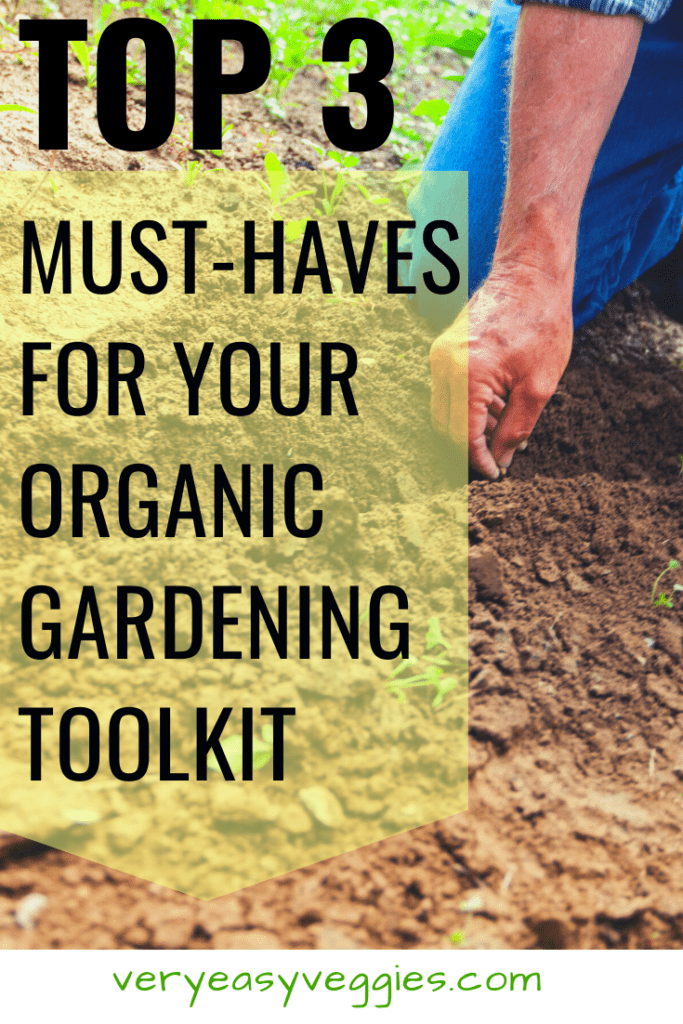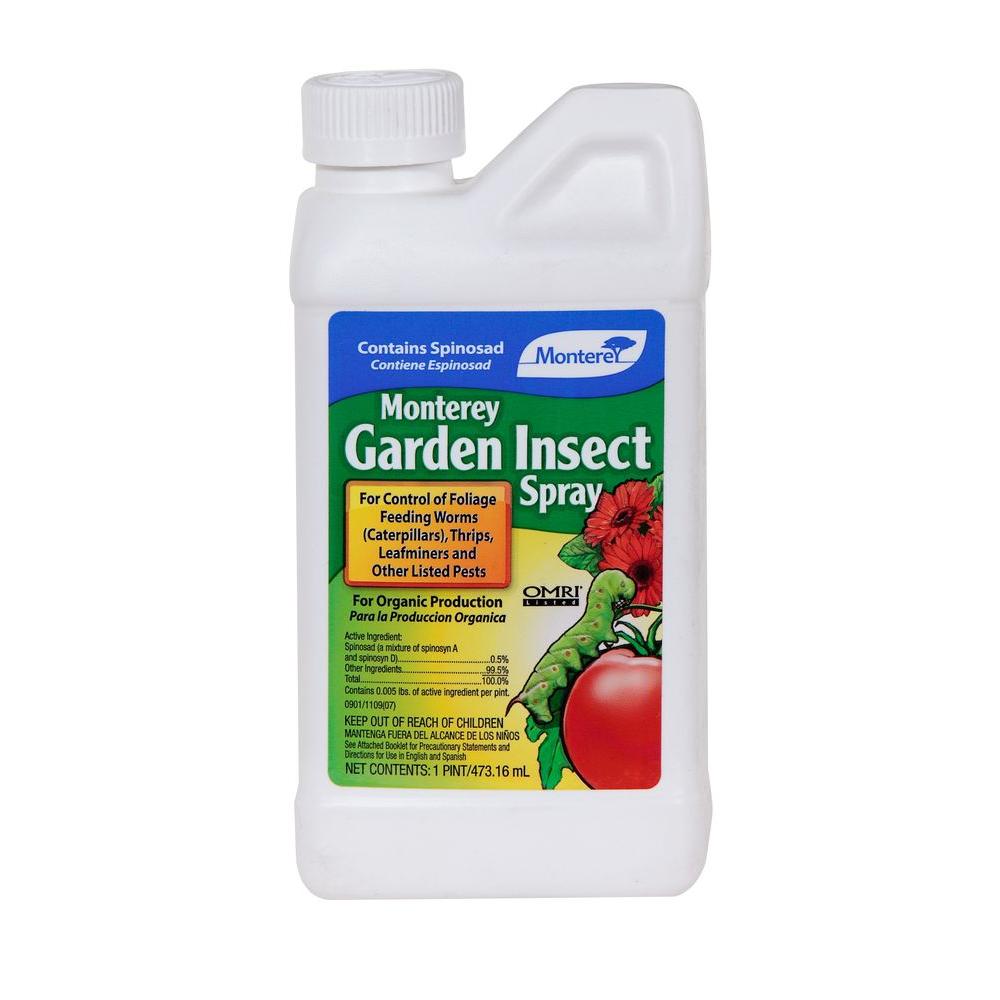What an exciting thing to see so many newbies jumping into vegetable gardening this spring! If you’re new, I can’t wait for you to literally taste the exciting, rewarding feeling of growing your own food. But, gardening still takes work and practice so you may find it has its challenges! With these solutions in hand, though, you’ll be ready to face almost any problem your organic garden throws at you!
These are the top must-have items I use often and would recommend for any organic gardener. This post contains affiliate links to help support this website.

3. Neem Oil
You may have heard of neem oil since it has become a pretty well known first go-to solution for the organic garden. Neem is a natural plant extract that can kill or repel certain types of insects. It is also great to eliminate common fungus issues on plants! I use it yearly for aphids or powdery mildew on squash, or any fungus spots or yellowing leaves on tomato plants.
However, most of the neem products I am familiar with only claim to handle specific insect pests: aphids, whiteflies, spider mites. Some people say that certain types of neem oil (pure, cold pressed, etc etc) actually does take care of other insects too but I cannot personally vouch for that. You may hear that “neem is not safe for bees” but this is really only if you specifically spray and coat a bee with it–just like if you coated it with vegetable oil spray, the bee could be harmed or killed. But once dried, neem oil is very safe for beneficial insects.
But chances are, you will see more than just aphids and whiteflies in your garden. That’s why I also recommend this next amazing product that far fewer gardeners know of.
Note: sometimes, for a really stubborn infestation of aphids neem doesn’t always do the trick. Even if not, it is still a great thing to have for fungus. You can try making the solution slightly stronger for aphids, or spray again according to package instructions. However recently a few people have told me that Spinosad worked well on aphids, which surprised me! I guess it really is the organic miracle spray.
2. Spinosad
I couldn’t believe it when I first heard of spinosad and started doing some research on it. A naturally sourced, safe & organic pesticide that specifically kills the harmful bugs?? It turns out, those things really can exist in the same product. Spinosad is a product of bacterial fermentation and according to the product label is effective for “caterpillars, thrips, leafminers, borers, fruit flies and more.”
Spinosad is applied as a spray on the plant. The cool thing is that any insect that starts to eat the plant will be affected by it, but other insects or animals will not. As far as safety with kids and pets, spinosad is even used in some products for fleas on pets or head lice on humans. As with many things though, ingesting large quantities could cause mild negative effects. However, it breaks down quickly in sunlight so you can harvest within about two weeks of spraying. If you want a full Q & A fact sheet, this one is helpful.

For some reason, aphids are not usually listed as a pest that spinosad can kill. However, I have had some people tell me recently that it worked on their aphid infestation! I still think neem is a good product to have on hand especially for fungal and whitefly/gnat problems which are common.
It is hard to find spinosad in stores even though it has been approved for the organic garden for years. If the Amazon links below are sold out, try the photo above from Home Depot. Note that some products below have the OMRI organic certification on the package but some don’t specify.
1. Organic Fertilizer
As an organic gardener, you should NOT be afraid of the term “fertilizer!” Some new gardeners assume that fertilizer means chemicals, but that is simply not true. Organic fertilizer is made from organic, natural materials like plants, fish, seaweed, animal waste, etc. Other fertilizers are made from “synthetic” ingredients, but the same types of nutrients are still there. The comparison is similar to taking a vitamin c tablet versus eating an orange. Obviously the real food is healthier long term, but both still get broken down in your digestive system into absorbable vitamin C.
Whatever you choose, the important thing is that your veggie plants NEED the nutrients found in fertilizer to grow. While you may have heard some experienced gardeners insist that homemade compost is all you really need, the practical truth is that using compost or DIY alone is much more of a trial and error guessing game for those who are newer to gardening.
To put it simply, you will get a much better harvest from your garden if you feed your plants with some good organic fertilizer. For more information on choosing fertilizer and understanding the three numbers on the label, read this post.
The basics of it is that the first number is for leafy green growth (essential for growing greens or starting plants out at the beginning of the season) and the second or middle number is necessary for roots, flowers, and “fruit” (including squash, tomatoes etc). That second number is important as flowers and fruit begin to develop. Try to keep the two numbers fairly balanced (i.e. 8-6-3 or 4-8-4 rather than 25-4-4).
Below are some good organic fertilizers, some of which I have used myself. This fish & guano one from Home Depot is one of my favorites since the liquid form works more quickly. (Plus fish & guano just sounds good, right?). 😉
Extra credit: Diatomaceous Earth
I know, I know, diatomaceous earth may be the most well known and commonly recommended product for safe, natural insect control. Some even ingest it for health reasons or to prevent internal parasites. But here’s why I don’t rank it as high as the other products on my list.
First of all, diatomaceous earth does not technically distinguish between bad bugs and good bugs. DE is made of tiny microscopic shards that, theoretically, cut or scratch and kill any insect that crosses it (or perhaps they may be smart enough to avoid it). So it is possible it may kill beneficial bugs, if that bothers you.
Secondly, personally, I do not feel DE is as effective simply because of how it works. A bug has to walk through it in order to be affected (unless it is smart enough to stay away). So the gardener has to apply it in the right places where it will hopefully get the intended bugs. And again, if a helpful ladybug walks through it, I would assume that’s bad news for the ladybug.
Still, DE is a helpful thing to have on hand to kill or keep bugs away from particular areas, in the organic garden or otherwise. Find it at Home Depot here or on Amazon below.
Which of these items do you already have in your toolkit? Share this post to help other gardeners find organic solutions!!
If you want to dive in and learn more about sustainable, organic, no-till vegetable gardening (including composting, succession planting and winter gardening), check out this great video course by expert market gardeners in zone 7 Canada at Local Harvest.